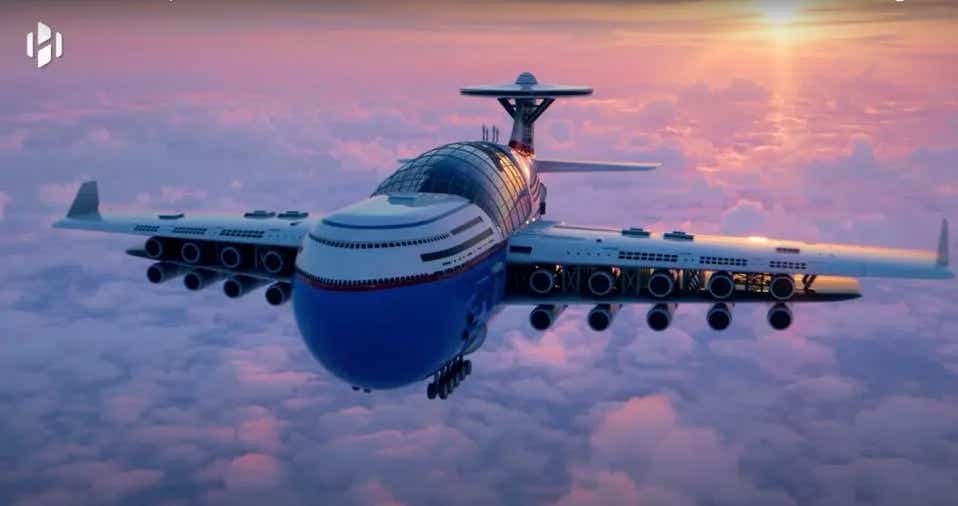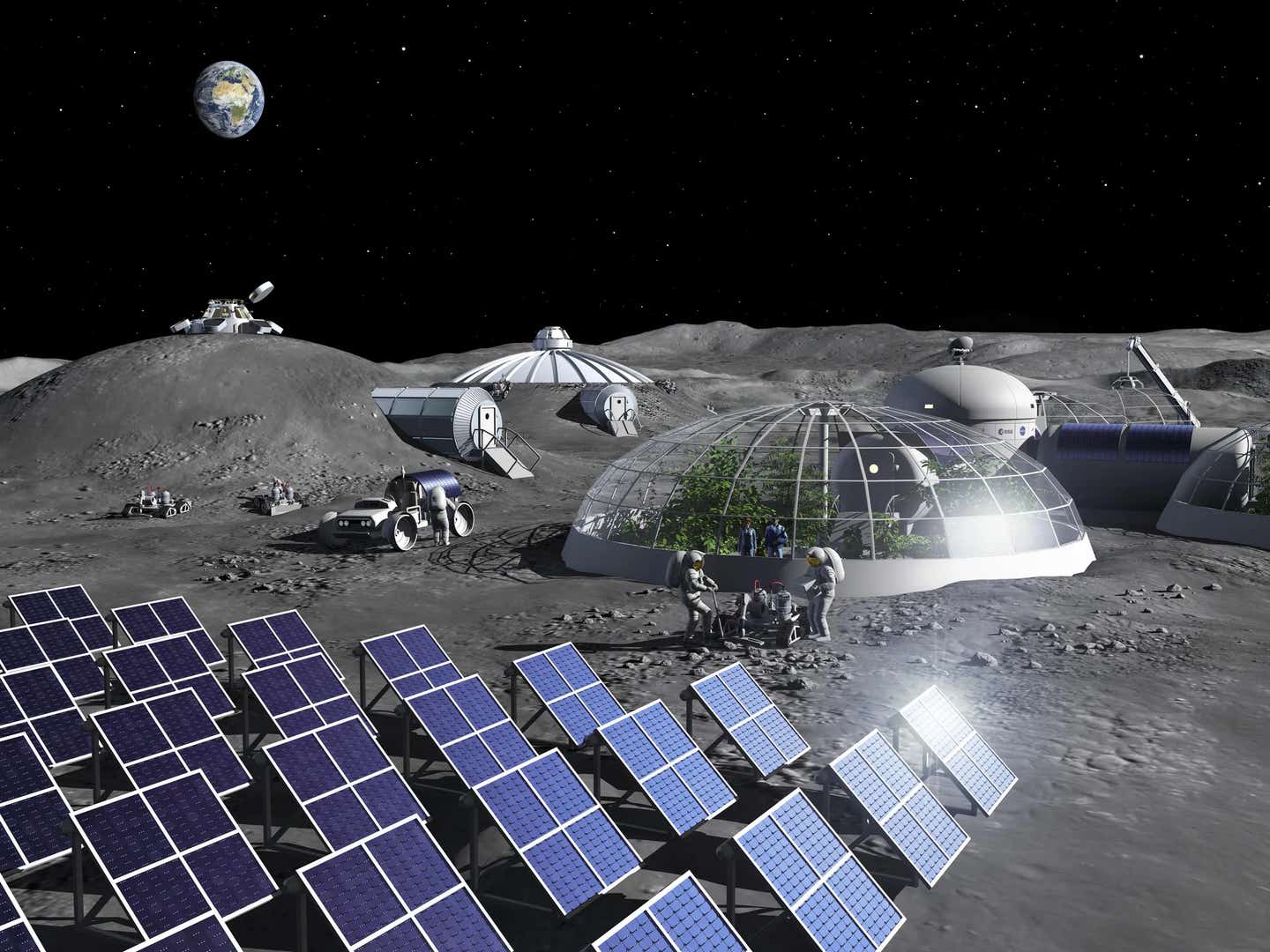Your next vacation could be aboard a nuclear-powered flying hotel
Powered by 20 nuclear engines, this Sky Cruise would not need to land. Instead, it would perpetually cruise above the clouds.

This flying hotel, designed to carry over 5,000 passengers, represents “the epitome of luxury.” (CREDIT: Hashem Al-Ghaili, via YouTube)
Nuclear fusion is becoming an increasingly significant part of our energy landscape. Yet, aside from fictional depictions of nuclear-powered transportation in movies like Snowpiercer, nuclear-powered vacationing has remained unexplored—until now.
Hashem Al-Ghaili, a science communicator and video producer, has recently sparked a lot of interest online. His video showcases an ambitious new Sky Cruise concept, originally created by Tony Holmston. This flying hotel, designed to carry over 5,000 passengers, represents “the epitome of luxury.”
Al Ghaili says he took his own inspiration from one of his favorite movies, Studio Ghibli’s “Castle in the Sky” anime, which features massive flying ships with people living inside.
Powered by 20 nuclear engines, this Sky Cruise—dubbed 'Skytanic' or 'Flytanic'—would not need to land. Instead, it would perpetually cruise above the clouds, offering spectacular views of sunrises, sunsets, and breathtaking night skies. Passengers could also witness the aurora borealis more vividly than ever before.
To board this airborne hotel, passengers would be transported via conventional airliners and private jets, docking with the Sky Hotel and disembarking through an external elevator.
Once onboard, they would enjoy luxurious amenities, including a 360-degree viewing deck at the tail, a massive concourse with shopping malls, a state-of-the-art medical facility, and all the usual features of a sea cruise ship.
Related Stories
Addressing the issue of turbulence, the Sky Hotel's AI system is designed to predict and mitigate it. Using technology similar to noise-canceling headphones, the system promises to smooth out the ride, ensuring that passengers “glide over the vibrations with ease.” This feature would be particularly appreciated by those taking a dip in the onboard swimming pool.
In his video, Al-Ghaili emphasizes that the Sky Cruise is currently just a concept. However, he dreams of “a future where such stuff could exist.” He even counters skeptics with an Albert Einstein quote: “If at first the idea is not absurd, then there will be no hope for it.”
Al-Ghaili also believes in the scientific feasibility of the concept. He notes that “small nuclear reactors that can power airplanes are expected to be ready by the 2030s.” For instance, the UK is working on a Small Modular Nuclear Reactor (SMR) set to join the grid by 2029, and the US is heavily investing in commercial nuclear fusion research.
Al-Ghaili is confident that with a few design tweaks, incorporating nuclear fusion and aerodynamics, the Sky Cruise could eventually become a reality, carrying thousands of passengers above the clouds.
The public's reaction has been mixed. Critics have pointed out the potentially high cost of such a project, which could translate into exorbitant ticket prices, making the Sky Cruise an option only for the wealthy. One commentator humorously noted, “I’m sure I would be able to afford a ticket for the lowest deck with no leg space and no access to the lounge.”
Despite the seemingly daunting idea of docking mid-air with a nuclear-powered flying hotel, it could offer a more relaxing alternative to the cramped and often stressful experience of current commercial flying. After all, squeezing into a tiny seat for ten hours next to a screaming child is far from ideal for any vacation.
The Sky Cruise concept, while currently a futuristic vision, challenges us to rethink the possibilities of travel and the potential of nuclear fusion. If realized, it could transform the way we vacation, offering unparalleled luxury and views that most can only dream of.
Note: Materials provided above by The Brighter Side of News. Content may be edited for style and length.
Like these kind of feel good stories? Get The Brighter Side of News' newsletter.
Rebecca Shavit
Science & Technology Journalist | Innovation Storyteller
Based in Los Angeles, Rebecca Shavit is a dedicated science and technology journalist who writes for The Brighter Side of News, an online publication committed to highlighting positive and transformative stories from around the world. With a passion for uncovering groundbreaking discoveries and innovations, she brings to light the scientific advancements shaping a better future. Her reporting spans a wide range of topics, from cutting-edge medical breakthroughs and artificial intelligence to green technology and space exploration. With a keen ability to translate complex concepts into engaging and accessible stories, she makes science and innovation relatable to a broad audience.



